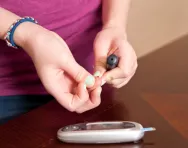Important update from TheSchoolRun
For the past 13 years, TheSchoolRun has been run by a small team of mums working from home, dedicated to providing quality educational resources to primary school parents. Unfortunately, rising supplier costs and falling revenue have made it impossible for us to continue operating, and we’ve had to make the difficult decision to close. The good news: We’ve arranged for another educational provider to take over many of our resources. These will be hosted on a new portal, where the content will be updated and expanded to support your child’s learning.
What this means for subscribers:
- Your subscription is still active, and for now, you can keep using the website as normal — just log in with your usual details to access all our articles and resources*.
- In a few months, all resources will move to the new portal. You’ll continue to have access there until your subscription ends. We’ll send you full details nearer the time.
- As a thank you for your support, we’ll also be sending you 16 primary school eBooks (worth £108.84) to download and keep.
A few changes to be aware of:
- The Learning Journey weekly email has ended, but your child’s plan will still be updated on your dashboard each Monday. Just log in to see the recommended worksheets.
- The 11+ weekly emails have now ended. We sent you all the remaining emails in the series at the end of March — please check your inbox (and spam folder) if you haven’t seen them. You can also follow the full programme here: 11+ Learning Journey.
If you have any questions, please contact us at [email protected]. Thank you for being part of our journey it’s been a privilege to support your family’s learning.
*If you need to reset your password, it will still work as usual. Please check your spam folder if the reset email doesn’t appear in your inbox.
Managing diabetes at school

If your child has diabetes, it's natural to worry about how they'll manage at school, especially if they're newly diagnosed. Thanks to the Children and Families Act 2014, all state schools are legally required to make necessary arrangements for diabetic children. But getting your child's school to understand their condition and feel confident in coping with it will often take some work on your part.


Download fantastic science resources today!
- Experiments And Science Fun pack
- Science Learning Programme for each school year
- All the instructions, questions and information you need
Luke Thorne, pubic affairs officer at leading charity Diabetes UK, says: ‘Parents often say that their child’s school expects them to go in and test blood or do insulin injections themselves. But to do this, you either need a very understanding employer, or to reduce your hours or even give up work altogether.’
Diabetes in primary school: tips for parents
Draw up a care plan
Diabetes UK wants to make sure pupils have individual care plans tailored especially to them – and recommends parents ask for them. They’re a good way to make sure that everyone is clear about issues including:
- Whether they’ll need insulin at school
- Whether they’ll need help with blood tests
- Whether they’ll need extra snacks
- Whether they’ll need help with carb counting
- Signs for staff to look out for that they’re having a hypo (or hypoglycaemia, which is low blood glucose levels)
‘Ideally you and your child will sit down with whoever's in charge of children with health conditions at that school – maybe the head – plus their specialist diabetes nurse and the school nurse. That way, you can all agree the care plan between you,’ says Luke.
Find lots of handy pointers on working out a care plan on the Medical Conditions at School website.
Raise overall awareness at school
‘One thing that can make a huge difference for children is everyone at school having proper awareness about their condition and knowing what signs to look out for’, says Luke. ‘As well as all their own teaching staff, that also includes their lunchtime and admin staff.’
Bullying can be a problem for children with long-term health conditions. ‘It’s good for the teacher to include other classmates. If everyone’s motivated to look out for signs that their classmate is unwell, they can feel like they’re playing an important role all looking out for each other.’
Make sure insulin is easy to reach
‘Insulin shouldn’t be locked away in a safe,’ says Luke. ‘If your child is very young, it’s fine for their teaching assistant to have it on them, but most older kids should be allowed to carry it around in a little bag in case they need it.’ In the same way, it’s important they have quick access to snacks to treat a hypo.
Keep talking
There can be a lot to learn about diabetes, but communication is key. If school staff get the right support from you and your child’s diabetes team, they’ll be more confident about giving your child the excellent care at school you want.
More detailed information for parents of school-age children with diabetes is available on the Diabetes UK website. You can also order a diabetes at school information pack for parents.
'He didn’t feel like the odd one out any more'
Vicky Lockwood, 37, from the Wirral, had to give up her job as a midwife when her son William, now 12, started at his first primary school.
‘William's first primary school didn’t understand his diabetes. They just saw him as the child who couldn't eat sugar and they didn't know the ins and outs of it, despite the diabetic nurse going in to explain things to them.
'I’d go in myself up to three times a day to test his blood – his teaching assistant called me constantly for back up.
'In the end, I had to give up my job as a midwife. I also had to accompany him on all his school trips or he wouldn't have been able to take part.
'Once, William had a hypo in the playground and ended up falling badly. A piece of gravel lodged in his leg and he needed an operation to remove it.
'By the time he was halfway through Year 1, I didn’t feel safe leaving him there any more. When I asked his diabetes clinic if they knew any other schools, they were able to recommend one. Although it was 25 minutes away, changing him was a great move.
'There were three diabetic children at the new school, which not only meant the staff could give the right support, but also William didn’t feel like the odd one out any more.
'The teachers could pick up on changes in him – if he started talking too much, or looked pale. Basically, they'd quickly spot all the hypo warning signs I'd watch for as a parent. He even went on two residential courses with his classmates.
'William’s new school gave us both some confidence back and I ended up going back to work full time as a midwife without worrying about him.’








